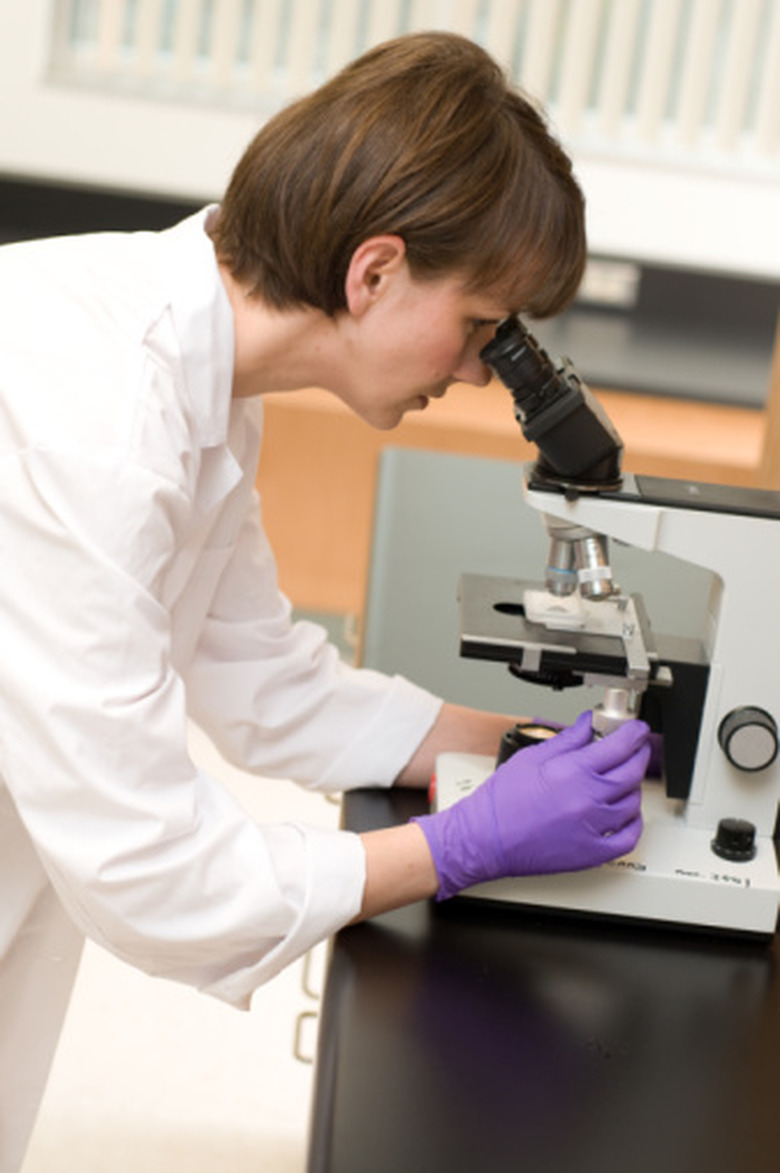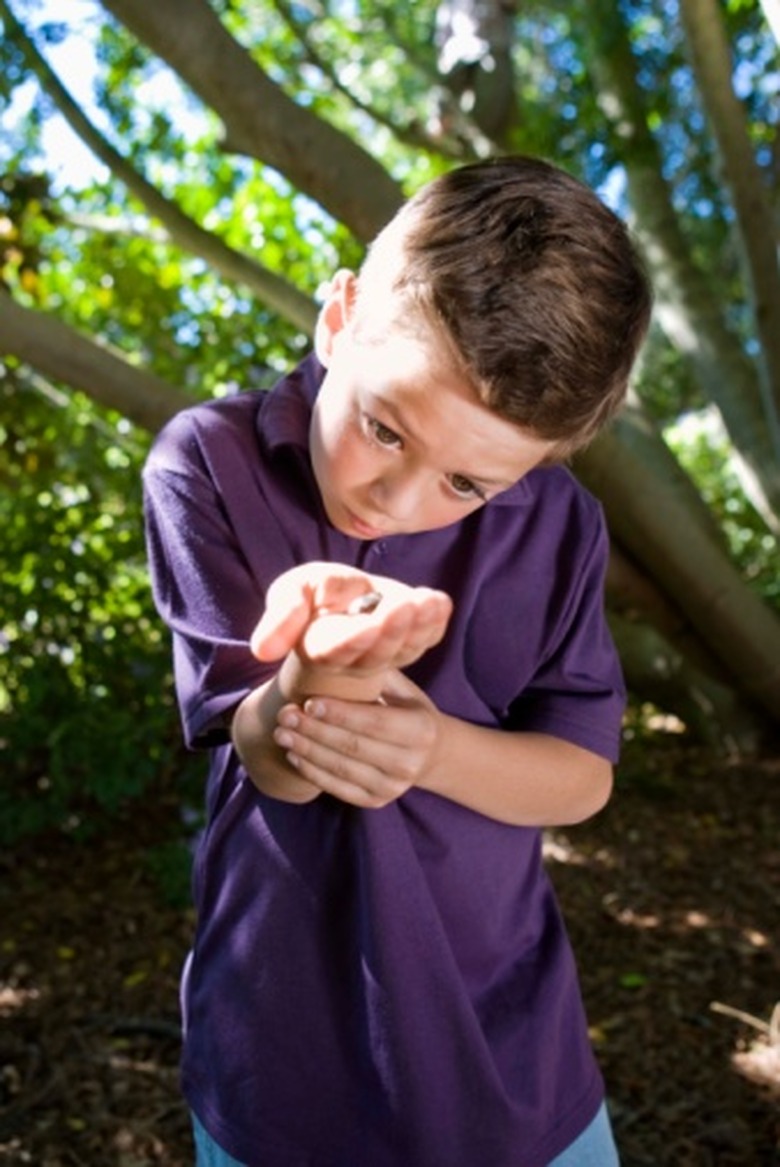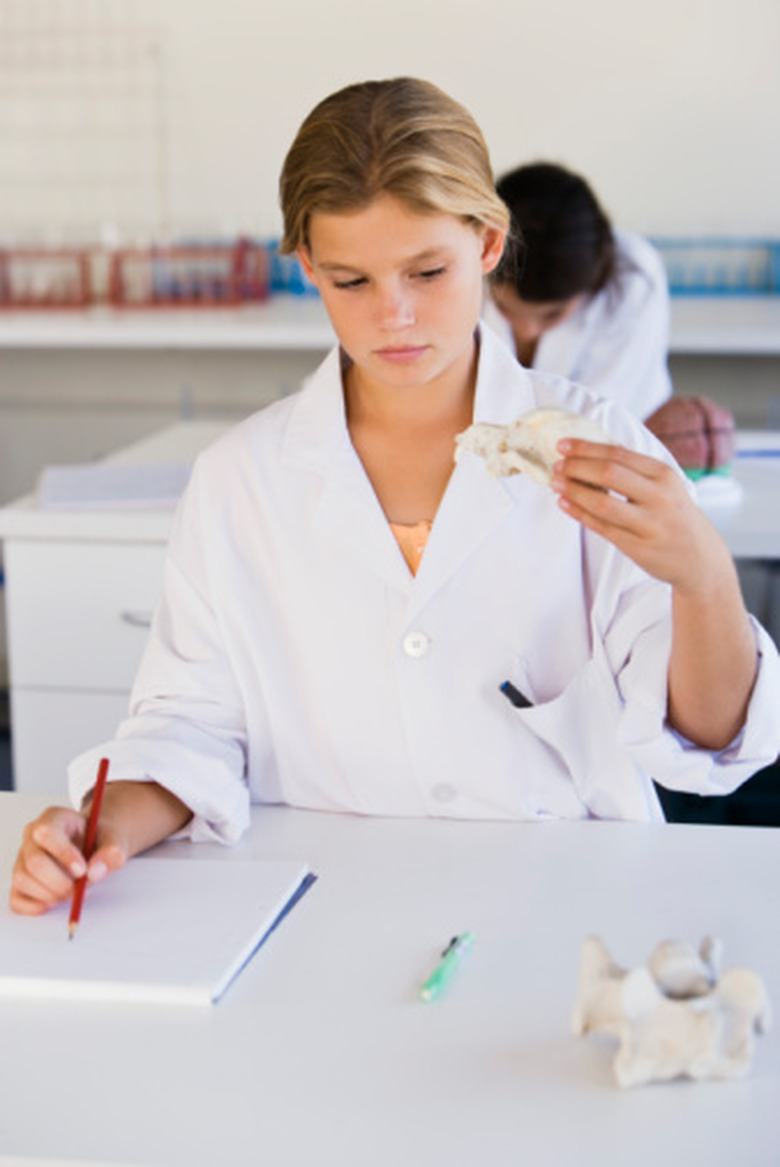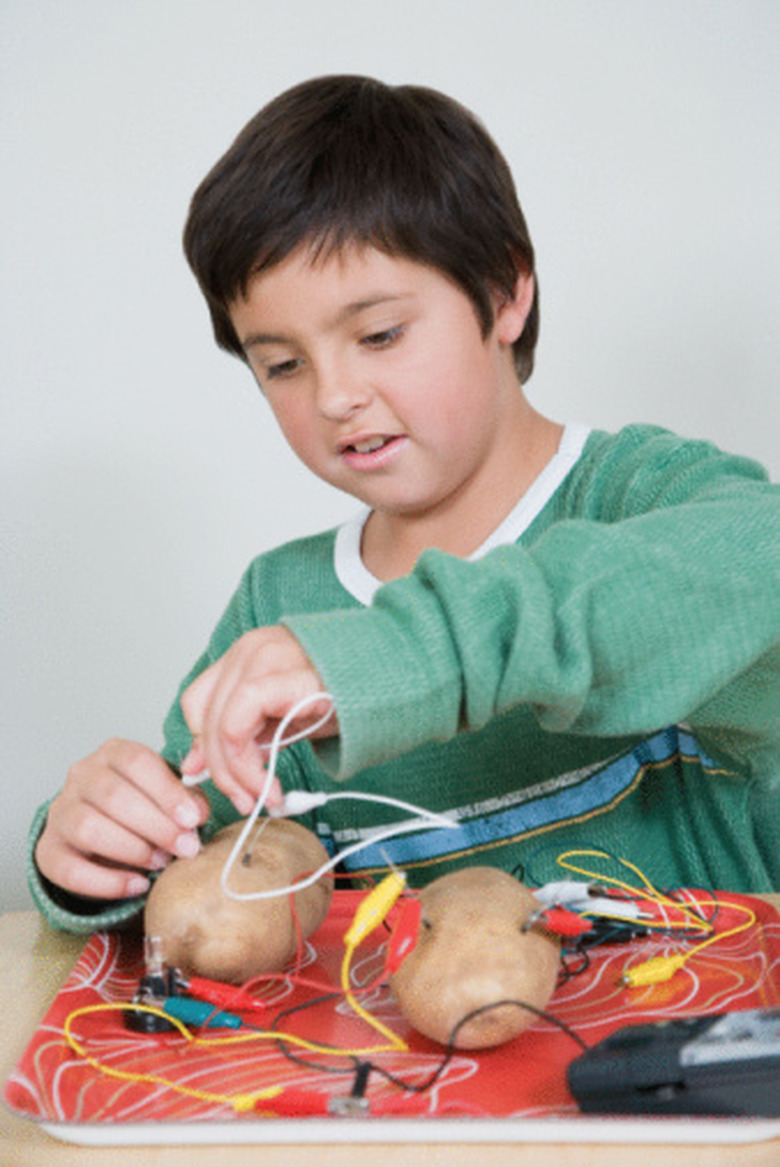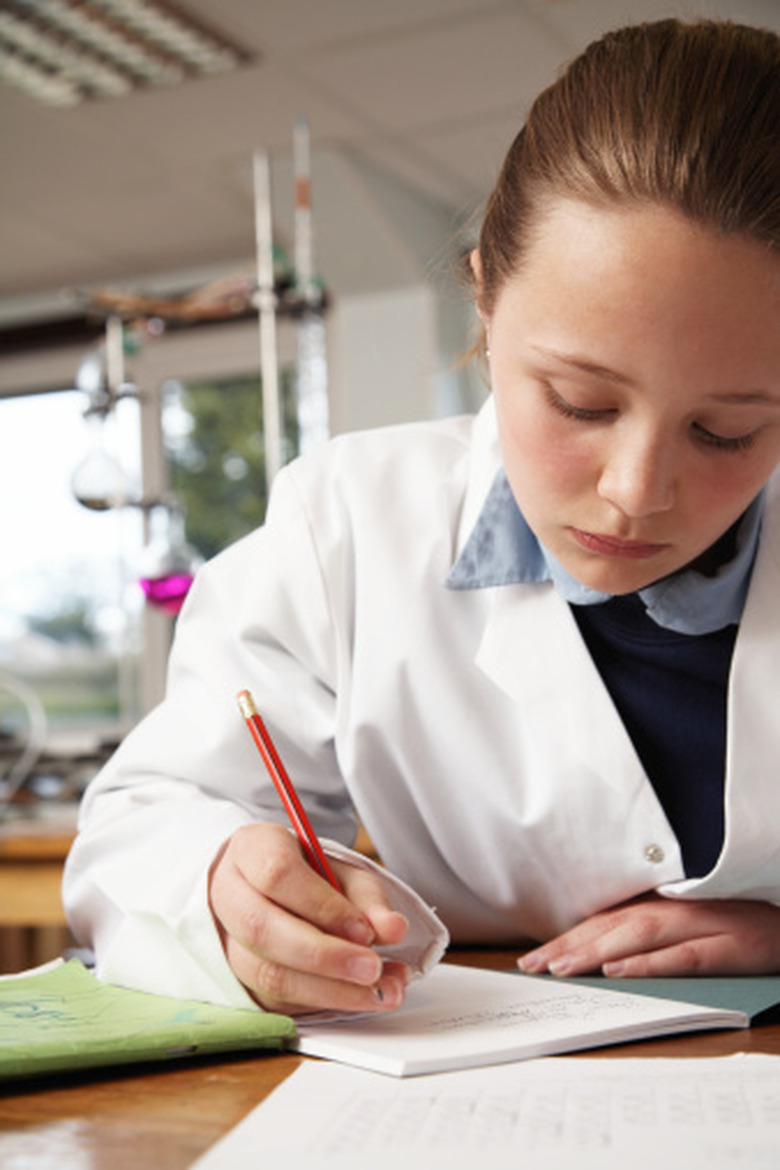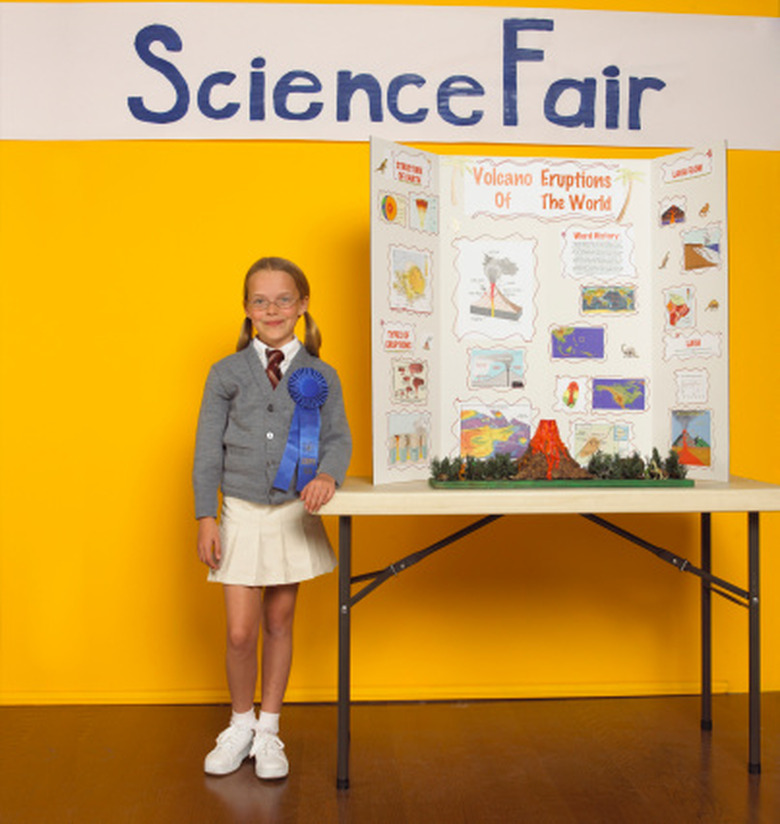Elements Of A Science Project
The essential elements of a science project are the same steps used as part of the scientific method: ask your question, do the research, make a hypothesis, conduct your experiment, draw your conclusion and communicate your results. Since this is the method that even professional scientists use, they guarantee you the most accurate results.
Ask Your Question
Ask Your Question
The first step is identifying your problem. What are you curious about? Ask a question that starts with how, what, when, who, which, why or where. Try not to choose a topic that is too broad; focus on one question only. In the solution to your problem, you should determine the cause and effect in the relationship of two items. The answer should be something that can be measured.
Do the Research
Do the Research
The main part of your project is your research. Look for answers to your problem or question. Use the Internet, scientific magazines and the library. Ask people who have experience in this area who may able to guide you in the right direction. When you have gathered your research, use these questions to see if it is credible and worth referencing on your project: Is the research fair and unbiased? Is the research current? Is the source trustworthy? Does the research show original works and sources? Can others use your references if they want to explore for themselves? If you can answer these questions with a yes, then you have found research that can be used in your project.
Make Your Hypothesis
Make Your Hypothesis
Now that you have completed your research, make your hypothesis. The hypothesis is an educated theory based on collected facts about the solution to your problem or question. Word your hypothesis this way: "I think if **__ , then** ****_ will happen." With your experiment, take steps to prove or disprove this statement. Your statement should directly relate to your original question and your answer must be an outcome that is one of the possible solutions.
Conduct Your Experiment
Conduct Your Experiment
Your experiment tests and proves or disproves your hypothesis. Make a log to keep track of everything you do and all the materials you use. Some experiments take place over several days. With others, you will be able to see results immediately. Make sure that your experiment is fair and not biased towards your hypothesis. Do your experiment two more times to make sure your results are the same each time.
Draw a Conclusion
Draw a Conclusion
When your experiment is complete, analyze the data in your log. Your conclusion should be a written account of the answer to your problem. Report whether your hypothesis is true or false. Do not change your results to fit your hypothesis. There is no mistake in having a hypothesis that turns out to be false. This is the reason for experimentation, and negative results have been the conclusion for many scientists. This often spurs on new questions and new experimentation.
Communicate Your Results
Communicate Your Results
In order for your science project to be complete, you must communicate your results to others. Scientists also do this, in a report or an article. If you are entering a science fair, showing your results is typically done with a display board, and there are guidelines on how to create your display The board should include your question and your hypothesis. The stages of your experiment can be shown graphically with photographs, drawings, charts or graphs. Have your log available for those interested in seeing your steps and your materials. Show your conclusions either graphically or in a report. If you built a model or have some props that people can look at or manipulate, they make your project much more interesting.
Cite This Article
MLA
Davis, Jill. "Elements Of A Science Project" sciencing.com, https://www.sciencing.com/elements-of-a-science-project-12747465/. 15 February 2011.
APA
Davis, Jill. (2011, February 15). Elements Of A Science Project. sciencing.com. Retrieved from https://www.sciencing.com/elements-of-a-science-project-12747465/
Chicago
Davis, Jill. Elements Of A Science Project last modified August 30, 2022. https://www.sciencing.com/elements-of-a-science-project-12747465/
